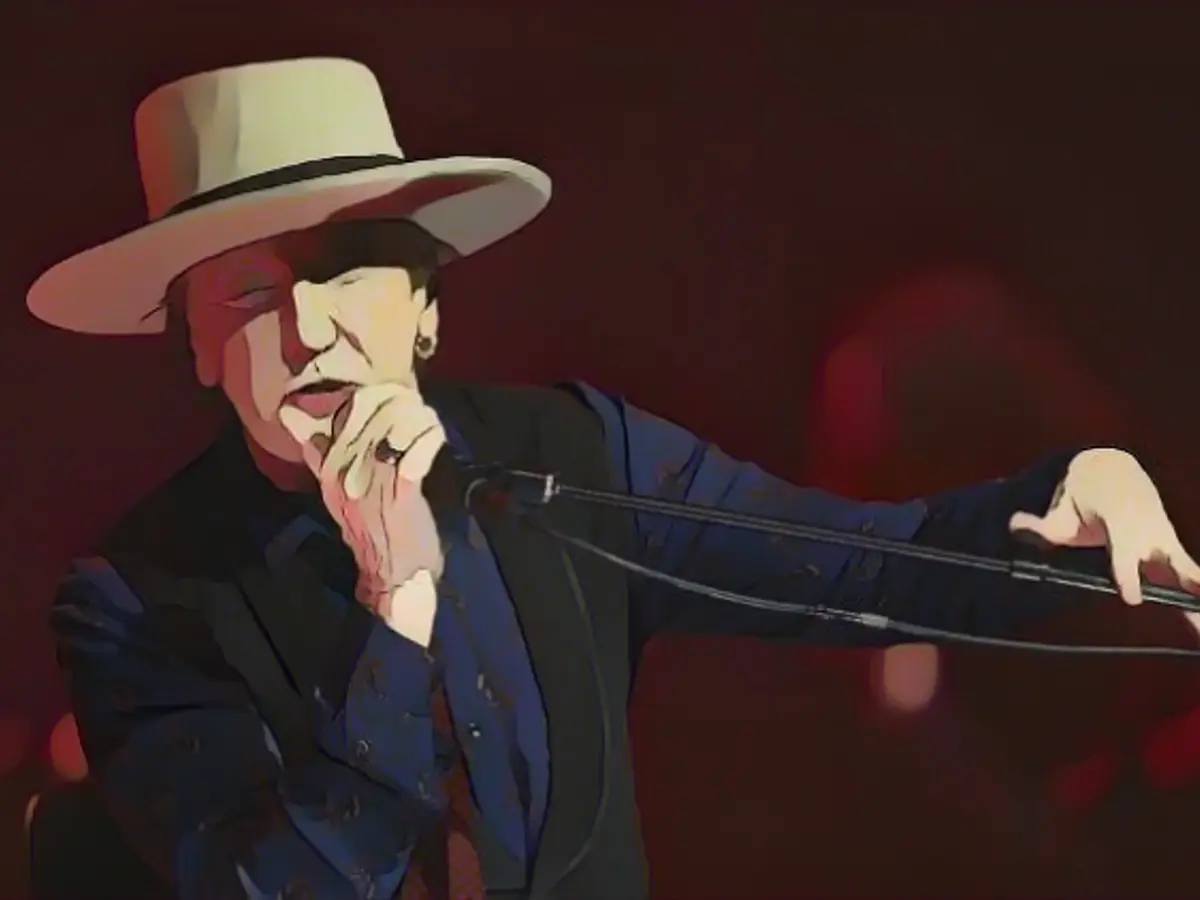Rock and Roll Rebel Marius Müller-Westernhagen Turns 75
Today marks Marius Müller-Westernhagen's 75th birthday. The "Peppermint Prince," known for his diverse music career and transformative roles, continues to captivate audiences.
Marius Müller-Westernhagen, a legendary figure in German music and entertainment, has fans from all walks of life, each drawn to different aspects of his rich and varied career. From his gritty proletarian stories of the early 80s to his exuberant stadium anthems of the 90s, his repertoire spans several genres and moods, reaching out to diverse music lovers.
The man behind the music, however, is anything but straightforward. Westernhagen's career has been marked by multiple upheavals, image changes, and unexpected shifts that make it challenging for fans to maintain a consistent view of him.
Several Phases, One Iconic Figure
Recent endeavors, like his anniversary album "Westernhagen 75 (75 Songs: 1974 - 2023)", attempt to reconcile these diverse phases of the artist's career. It encapsulates the delicate individuality of his early work, the rebellious spirit of the Peppermint Prince, the joyful experimentation of his mid-80s zone, the grand gestures of his megastar period, and the dedication and musicality of his recent productions.
Indeed, Westernhagen's career trajectory is as unpredictable as it is endearing. Before rising to musical fame, he had a promising acting career, largely abandoned after his success with hit albums like "Mit Pfefferminz bin ich dein Prinz" and "Sekt oder Selters" in the late 70s and early 80s.
The "Peppermint Prince" and the Theo Gromberg Years
Westernhagen's breakthrough came in 1977 with the action comedy "Aufforderung zum Tanz". In this film, he portrayed the likeable Ruhrpott hallodri Theo Gromberg with profound grit and charm. His fashionable outfits – jeans, leather jackets, and tiger’s tooth chains – became instantly iconic.
"" marked the beginning of an extraordinary journey for Westernhagen. The film's success led to a sequel, "Theo gegen den Rest der Welt", in 1980, which further cemented his fame.
This small-screen prominence served as a steamroller for his burgeoning music career. He transitioned from playful beat hits to harder blues and rock'n'roll, exposing his loyal following to a more invigorating and challenging sound.
Playing Characters to Stardom
Westernhagen's theatrical background played a significant role in shaping his musical persona. From the rough and gritty working-class man in his early songs to the suave, stadium-filling crooner of the 90s, he masterfully embraced and shed various identities throughout his career.
In a fascinating twist, some fans consider the somewhat exaggerated, self-dramatizing period of his early music as his most "authentic." In an interview for his anniversary album, Westernhagen openly admitted that he was playing a role at the time.
Philosophizing on his former self, he stated, "I took advantage of it. And that came about because I filmed in this milieu, because I got to know this milieu. [Before I played Theo], I'd never been to Herne in my life. Absolutely not. I hadn't driven a truck before either."
A Mega Star in the Making
In the late 80s, Westernhagen ditched his previous role and ushered in a new chapter in his career. This was a time of daring synthesizer experiments and a push towards mainstream commercial success, as evidenced in hits like "Radio Maria."
However, this journey towards stardom proved to be a tortured one. Overwhelmed by the shift in focus from content to packaging, Westernhagen reeled from the unrelenting scrutiny and spotlight that came with his newfound fame. He suddenly called it quits, discontinuing his stadium concerts and embarking on a longer creative hiatus.
Returning to His Roots
Since 2000, Westernhagen has embraced a more authentic and reflective role in his music. The ex-superstar now focuses on reinterpreting his musical origins and reconnecting with his roots.
Albums like "Williamsburg" and the "Peppermint Experiment" showcase this newfound artistic freedom. In his words, "I have no ambition to be successful and get noticed. I also don't care what people say about me, because most of them don't know me. [But] the ambition to make good and valuable records that trigger something in people is unbroken and even greater than in my younger years."
Additional Insights
Westernhagen's musical influences are diverse. According to the , he draws inspiration from a range of artists and genres, including Bob Dylan, Leonard Cohen, and blues music.
His career transcends German borders, as well. Westernhagen has collaborated with international musicians and performances in various countries, such as the United States and Canada.







